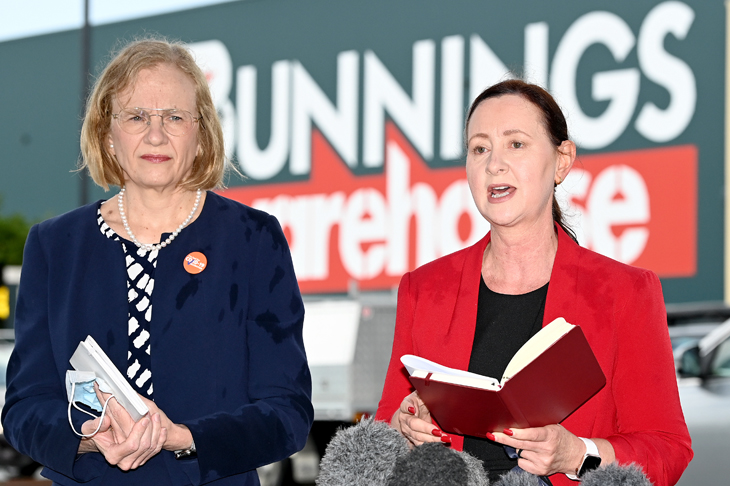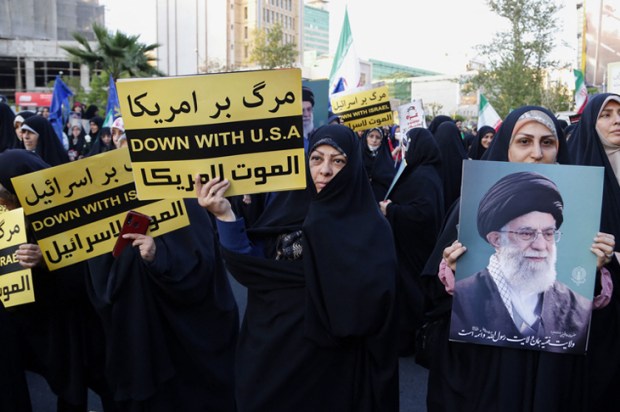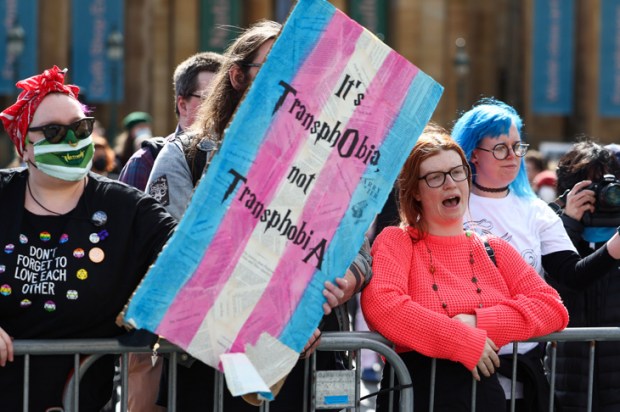Why has the Queensland health department withdrawn funding for its award-winning QoVax research program studying the safety and efficacy of Covid-19 vaccines?
Only last August, Queensland’s Health Minister, Yvette D’Ath, and the chief operating officer of Queensland Health, Dr David Rosengren, celebrated the work of the QoVax team, led by Professor Janet Davies, which was a highly commended finalist in the Pursuing Innovation category at the 2022 Queensland Health Awards for Excellence.
The prize was no surprise. The program is the creation of 27 highly-skilled researchers, health professionals and administrative service staff with over fifty research, digital, scientific, and clinical skillsets such as laboratory scientists, nurses, solution and enterprise architects, pathologists, molecular and computational biologists, bioinformatician data scientists and infectious disease specialists. They were supported by multiple partners including twelve health service agencies, five universities, and two private pathology services
QoVax was also strongly supported by Queenslanders, rapidly enrolling more than 10,000 participants, both vaccinated and unvaccinated, from 85 per cent of postcodes across the state including communities in regional and Far North Queensland of whom more than 2 per cent identify as Aboriginal and/or Torres Strait Islander.
That level of support didn’t just happen. People from the QoVax team like Josh, an Aboriginal and Torres Strait Islander health worker, and Janette, a registered nurse from Cairns, met with elders and First Nation communities in remote locations. They were accompanied by the Royal Flying Doctors Service who transported blood samples back to the laboratory in Cairns for testing.
Countries like Australia and New Zealand were uniquely placed to investigate vaccine efficacy because their diverse population was, until late in the pandemic, relatively free of the Covid-19 virus. Full marks to Queensland, and Professor Davies, for seizing the initiative. She was conscious from the outset that the Covid vaccine rollout was the largest coordinated vaccination program that had ever been undertaken and she wanted to record and evaluate the experience of Queenslanders.
The QoVax team didn’t just collect the standard data. Participants provided information on environmental and social determinants of health and biospecimens of blood and saliva that have been used to derive genomic, transcriptomic and proteomic datasets that will shed light on how the novel vaccines impact the immune system.
The secure digitally integrated biobank has 120,000 biospecimens: serum, saliva and peripheral blood mononuclear cells, in three -80 degrees Celsius freezers and three liquid nitrogen dewars. The linked data repository has four million linked data points and more than 500 whole genomes.
In addition, the biobank has access to real-time electronic medical records. With 70 per cent of hospitals in Queensland storing medical records electronically, the study was intended to allow long-term digital surveillance of health outcomes related to Covid-19 vaccinations, and intersections between vaccine responses and Sars-CoV-2 infection.
Studying immune responses is a vital part of assessing vaccines and Davies’ work is consistent with similar studies completed on other vaccines but her research is particularly important because two new vaccine delivery platforms were used – modified messenger RNA and viral vector DNA. The multiomic datasets that her team has collected will be critical to deciphering the impact of these platforms on the DNA, RNA and proteins synthesis of the human immune system. This is particularly important because the original trials of these vaccines were meant to last two years but the placebo group was vaccinated after only two months. As a result, there is a shortage of rigorous data adding even more importance to Davies’ research which includes an unvaccinated cohort. The information will allow researchers not just to better understand how the vaccines work but why vaccinated or unvaccinated people get repeat infections, long Covid, severe Covid or indeed die of Covid.
The study and the biobank have enormous international significance. The main comparable study is the UK Biobank but that country had very different early experience with high Covid caseloads prior to the rollout of vaccines.
Already the QoVax team has presented early findings at five conferences. The team was working on next steps to make the QoVax biobank and data repository accessible. The process had begun to scope and develop a user interface through collaborative workshops with researchers and health professionals across Australia.
Yet instead of answering vital questions about why Australia, one of the most highly vaccinated countries in the world, has such high excess mortality, and so many cases of long Covid in vaccinated people, Professor Davies is being forced to close down the QoVax program and sack her staff.
Worse still, the biobank, which should be a resource for the world, is threatened with destruction. Its precious resources will be destroyed in twelve months to save a trivial sum of money. The whole project has cost only $20 million.
Australia usually punches above its weight in medical research with eight Nobel prizes for physiology and medicine. Unfortunately, it also has a reputation for treating its scientists with contempt. Nobel laureates Barry Marshall and Robin Warren were ostracised in Australia for several decades after their amazing discovery of the bacterium Helicobacter pylori and its role in gastritis and peptic ulcer disease by a ‘gastric mafia’, an entrenched coterie of established scientists who refused to accept their findings because the therapeutic implications dented their vested interests.
The value of this data collected by QoVax is incalculable. It is a national scandal that it is not properly resourced. Every Queenslander involved in the project needs to speak up, as does every vaccinated person who has suffered from long Covid, or repeated Covid infections, or has been hospitalised with Covid, as well as every person that has suffered a vaccine injury or death and every person subjected to a vaccine mandate (when the vaccines did not stop transmission of the virus).
All Australians deserve answers to the questions these vaccines have raised. The best chance at finding those answers lies in the samples stored in the QoVax biobank. Brainless bean counters and bureaucrats and those with a vested interest in not answering those questions must not be allowed to destroy it.
Got something to add? Join the discussion and comment below.
Get 10 issues for just $10
Subscribe to The Spectator Australia today for the next 10 magazine issues, plus full online access, for just $10.
You might disagree with half of it, but you’ll enjoy reading all of it. Try your first month for free, then just $2 a week for the remainder of your first year.














Comments
Don't miss out
Join the conversation with other Spectator Australia readers. Subscribe to leave a comment.
SUBSCRIBEAlready a subscriber? Log in